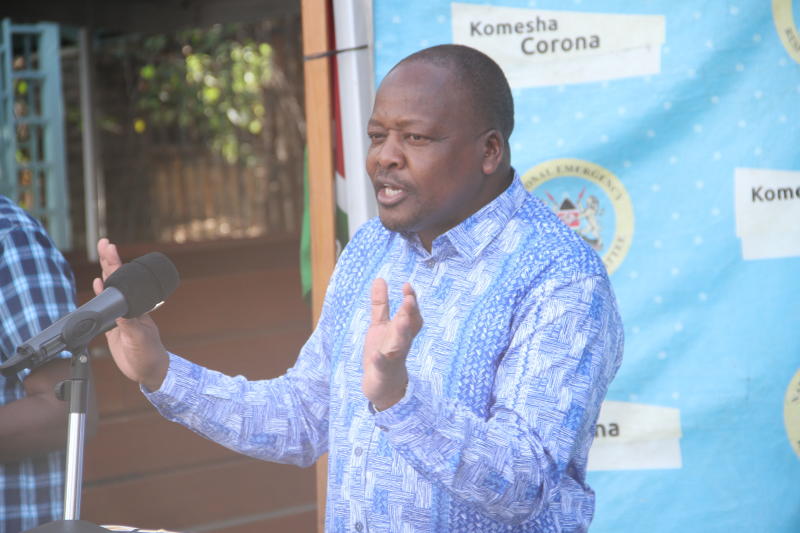×
The Standard e-Paper
Stay Informed, Even Offline

Health Cabinet Secretary Mutahi Kagwe. [Edward Kiplimo, Standard]
Media can help educate the public on the crucial role hygiene plays in keeping diseases at bay, Health Cabinet Secretary Mutahi Kagwe told editors at a workshop.